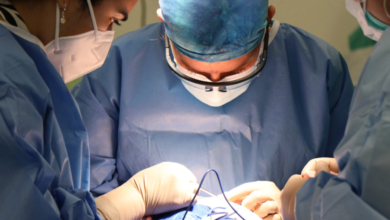Revolutionising Patient Care: The Future of Dentistry Unveiled

Introduction
As the field of dentistry continues to evolve, new technologies and methodologies are reshaping patient care. From advanced diagnostics to innovative treatment options, the future of dentistry holds exciting potential. This transformation is not just about improving oral health but also about enhancing the patient experience, making dental visits more efficient and less daunting. This blog post delves into the future of dentistry, exploring how these advancements are set to revolutionise patient care.
Advancements in Dental Technology
Precision and Efficiency with Digital Dentistry
The advent of digital dentistry has been a game-changer. Techniques such as 3D printing and CAD/CAM technology allow for the creation of precise dental prosthetics and restorations. This advancement not only saves time but also improves the accuracy of dental work. With digital impressions replacing traditional moulds, patients find the process more comfortable and less invasive. These technologies are rapidly becoming an integral part of practices like dentist Liverpool, offering a glimpse into a more efficient future.
Minimally Invasive Procedures
The move towards minimally invasive procedures is another significant trend in modern dentistry. Techniques such as laser dentistry provide a less painful alternative to traditional drilling and surgery, reducing recovery time and discomfort for patients. These advancements are part of a broader trend towards patient-centred care, which focuses on comfort and satisfaction as much as clinical outcomes. Research has shown that minimally invasive techniques are beneficial in preserving natural tooth structure, which aligns with the goals of long-term oral health.
See also: Optometry Services for Clear Vision and Eye Health
Patient-Centred Dental Homes
A Holistic Approach to Dental Care
The concept of a patient-centred dental home is gaining traction as a model for future dental care. This approach emphasises comprehensive, coordinated care that is tailored to the needs of each patient. By incorporating preventive strategies alongside treatment, dental homes aim to reduce the incidence of oral diseases and improve overall health outcomes. According to recent studies on patient-centred dental care, this model ensures that patients receive consistent care that is both accessible and efficient.
Integration of AI and Telehealth
Artificial Intelligence (AI) and telehealth are also poised to revolutionise the dental industry. AI can assist in diagnosing conditions through pattern recognition and predictive analytics, enabling dentists to identify issues before they escalate. Telehealth, on the other hand, provides an avenue for remote consultations, making dental care more accessible to those in remote areas. These technologies highlight the importance of innovation in creating a more inclusive dental landscape.
The Role of Research in Shaping Dental Practices
Research continues to play a critical role in the evolution of dental practices. Studies have shown that ongoing research into materials and techniques can significantly impact patient outcomes. For instance, research into advanced biomaterials is paving the way for more durable and effective dental solutions. By investing in research, the dental community is better equipped to address the challenges and opportunities of tomorrow.
Conclusion
The future of dentistry is indeed bright, with myriad innovations set to transform how practitioners deliver care. From the integration of digital technology to the development of patient-centred dental homes, the industry is moving towards a more holistic, efficient, and inclusive future. As these changes unfold, patients will benefit from improved care experiences and enhanced oral health outcomes.







